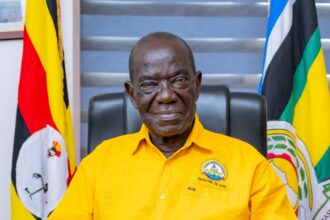Amidst the recent decision by United States to remove Uganda off the list of beneficiaries of the African Growth and Opportunity Act (AGOA), the former senior presidential spokesperson Tamale Mirundi has asserted that this move by the US is more than a trade decision but a signal of America’s strategic push for a change in Ugandan leadership.
Mirundi’s perspective hinges on the belief that AGOA’s revocation is a deliberate maneuver to apply pressure on Uganda’s political landscape. According to him, this action isn’t solely about trade infractions or economic disagreements but an indication of external influence shaping the internal political trajectory of Uganda.
“The Americans are no longer interested in Museveni. First, they’ve noted that Agoa failed to benefit Ugandans as intended; instead, it solely favored one family and their associates. Secondly, America initially valued Uganda as the regional police force, but with their training support extended to Kenyan and Burundian armies, Uganda’s strategic importance has diminished in their eyes. Consequently, their focus has shifted, aiming to witness a change in leadership within the State House,” he remarked.
Mirundi emphasized that Uganda’s once-vaunted military invincibility has been compromised by internal issues, primarily stemming from misconduct by army leaders, such as theft in the areas where they are deployed.
“The invincibility that the Ugandan army once held is now lost. Historically, it was Uganda that deployed forces in regions like Somalia or Congo. However, in today’s landscape, even Burundi has taken on similar roles. For instance, in Somalia, Kenyan armies operate with commendable discipline, avoiding issues like theft. This shift in dynamics contributes to the diminishing importance of Uganda in the eyes of global powers, particularly the United States. The removal of Uganda from AGOA serves as a symbolic signal, further supported by the increasing imposition of sanctions on Museveni’s generals. It suggests that America is no longer content with the current leadership and is actively seeking a change in the country’s political landscape,” he asserted.
The African Growth and Opportunity Act, enacted in 2000, was designed to promote trade between the United States and eligible sub-Saharan African countries by providing them with duty-free access to U.S. markets for certain goods. Uganda’s sudden removal from this preferential trade program has raised eyebrows, prompting speculations about the underlying motives behind this decision.
Moreover, Mirundi’s assertion fuels existing debates about the political future of Uganda. It also invites contemplation on the potential ramifications of external nations using economic tools to influence or pressure the governance and leadership of a sovereign nation. The intricacies of international politics intertwining with trade policies add layers to the ongoing discourse about Uganda’s governance and its relationships with global powers.
Do you have a story in your community or an opinion to share with us: Email us at Submit an Article









